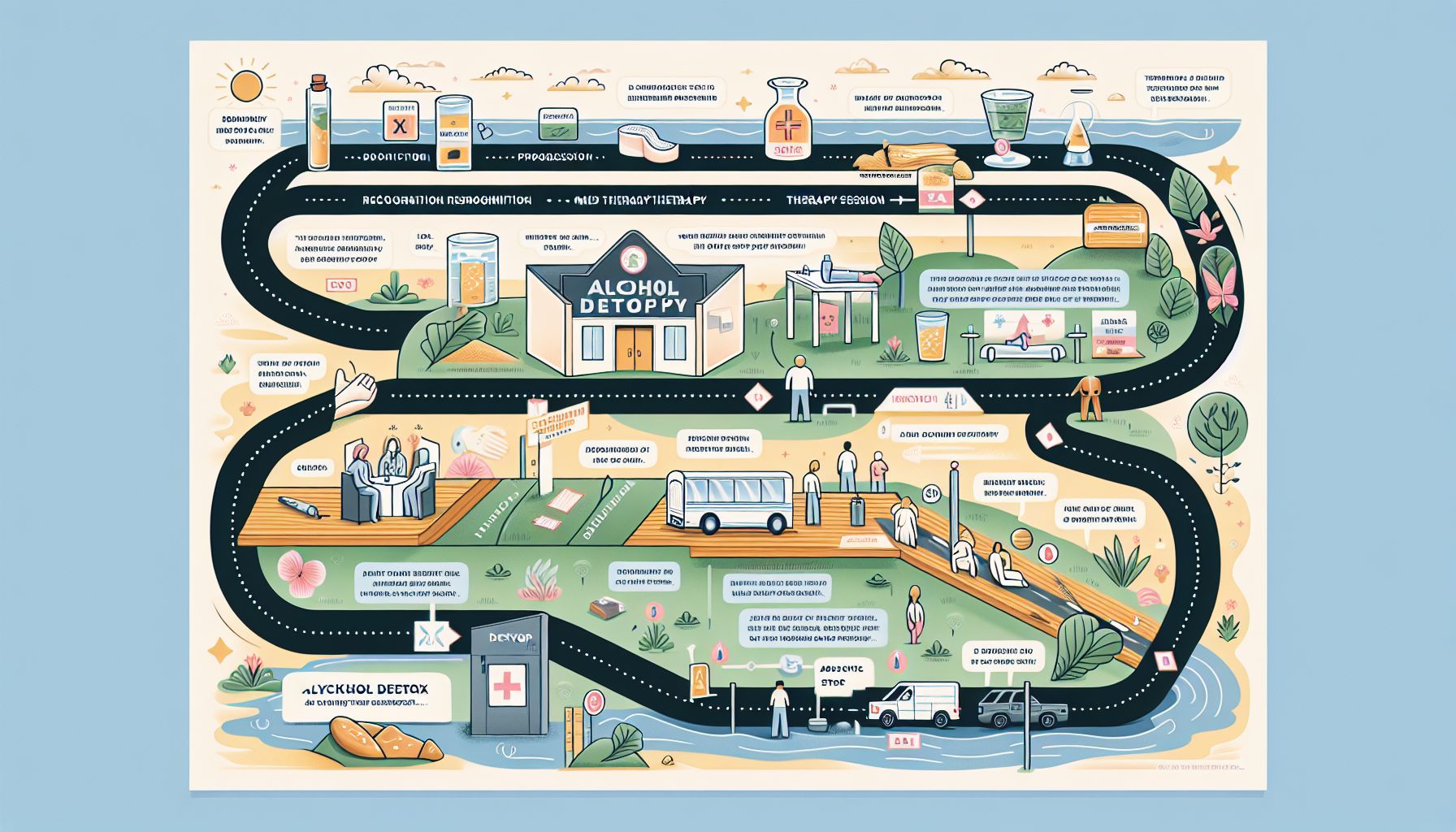Alcohol addiction is a pervasive issue in our society, with a nearly 14.1 million adults in the U.S. reportedly having the condition. Pursuing help for alcohol addiction is a substantial step towards healing, and the journey often begins with alcohol detox therapy. This process can be daunting, but with the correct knowledge and support, it can lead to successful recovery.
The Necessity of Detox Therapy
You may be wondering why detox therapy is necessary. Alcohol addiction is not merely psychological; it prompts concrete physical repercussions. Alcohol stimulates a sedative effect on the brain, and recurrent usage causes the brain to adjust to the excessive sedation. When alcohol consumption abruptly stops, the brain struggles to regain balance, leading to the adverse effects known as withdrawal symptoms. This fallout could include severe symptoms such as delirium tremens, seizures, or even death. Thus, alcohol detox therapy, conducted under professional supervision, becomes crucial in ensuring a safer and more comfortable process.
Stages of Alcohol Detox Therapy
The process of alcohol detox therapy is typically divided into three stages:
Stage One: Evaluation
The critical first step in detox therapy is evaluation. During this phase, healthcare professionals will assess the nature and extent of the addiction. Assessment includes exploring the history of substance use, possibly through the use of blood tests, to decide on the best approach for treatment.
Stage Two: Stabilization
Following evaluation, the next step is stabilization. Medically assisted detox takes place during this phase. Medical teams administer medications to manage withdrawal symptoms and provide emotional support to help individuals cope.
Stage Three: Preparing for Future Treatment
Detoxification alone doesn’t treat alcohol dependence. Detox therapy’s final stage involves preparing for follow-up treatments, which are to be continued after detox. Therapists provide information about further treatment options, encouraging the commitment towards a long-term recovery.
Medically Assisted Detox
Medically assisted detox, carried out by professionals, forms the backbone of alcohol detox therapy. You have the choice between inpatient and outpatient therapy, each having their own pros and cons. Inpatient detox therapy offers a consistent care environment, while outpatient therapy provides an affordable alternative, where you can stay in your home during treatment. The selection between these options depends largely on the severity of alcohol dependency and personal circumstances.
There are various medications that professionals might utilize during detox. These drugs help control withdrawal symptoms and cravings. These include Acamprosate, Naltrexone, and Disulfiram. It’s also common for medical professionals to administer Benzodiazepines to ease withdrawal symptoms or anti-psychotic medications to manage delirium.
Considerate Aftercare
The journey doesn’t end with detox therapy. Addiction is a chronic disease, meaning that, like diabetes, it must be managed over time. As such, aftercare forms a vital part of alcohol detox therapy. Many programs offer follow-up treatments like cognitive-behavioral therapy, group or individual counseling, and sober living houses.
This part of the process encourages a continuous commitment to recovery and helps to develop coping mechanisms to avoid relapse. Ongoing support is a crucial element in maintaining sobriety, and should not be undervalued.
Final Thoughts
Embarking on alcohol detox therapy is an important, life-changing decision. It requires mental stamina and commitment. However, it’s the first step towards a healthier, alcohol-free life. The eventual liberation from the grasp of alcohol addiction is truly worth the journey.
Importantly, never attempt alcohol detox therapy unsupervised. The risks associated with withdrawal are not to be taken lightly. Always ensure to seek professional help for safe and successful detoxification. After all, the primary aim of alcohol detox therapy is to ensure that your journey towards sobriety is as comfortable and productive as it can be.

